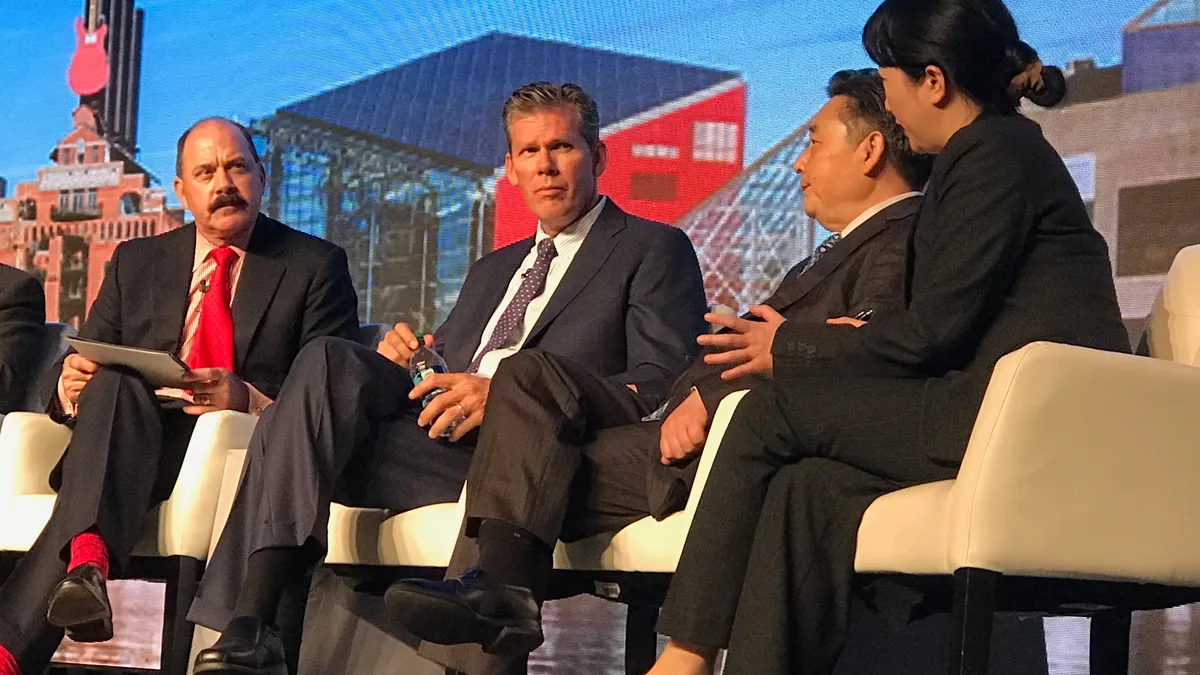In case you missed it: Thoughtful, newsworthy comments from industry professionals and players, from the International Solid Waste Association's World Congress and the Solid Waste Association of North America's WASTECON.
"We have a responsibility and an unprecedented commercial opportunity to shape and influence the birth of a truly effective global closed loop resource sector. This would be one that could really contribute to significant emissions reductions."
— Veolia Vice President for International Affairs Gary Crawford during a conversation on climate change and the waste industry. Crawford said it was important to rethink the circular economy as not only an engine for economic growth, but as a vehicle for combating climate change.
"What I’d showcase is the expansion of our organics curbside collection. At this point, we’ll be at 3.3 million people by the end of October. Many of our residents are using the service, are really engaged with us, [and] very excited to see compost come back into their community. That is probably our most ambitious program that we’re doing right now."
— DSNY Commissioner Kathryn Garcia, speaking at a panel on waste management in large cities with over 10 million residents. The city has been expanding its voluntary curbside collection of organic material this year.
"I think we can agree that the advancements in technology are coming quickly. Here in North America and in Europe, things that were rarely seen 10 years ago are now standard. Roll carts. Automation. Rear-vision cameras. Global positioning sensors on collections vehicles. Radio frequency identification. Route optimization, and the list goes on. Thankfully, because of the internet and the connectivity that's available to us today, everybody has the opportunity to learn together as new technologies and processes emerge."
— Don Ross, director of sales and marketing for McLaughlin Family Companies. Ross facilitated a discussion on the impact of technology on waste collection and transportation. The panelists discussed the types of emerging technologies that they're seeing in their sectors along with the importance of staying on top of tech trends to operate efficiently and effectively.
"As you can imagine with temporary workers, the machinery is complicated. So somebody that's coming in that's never run it, they go through a training program, but they're probably greener than somebody who's done it for a period of months or years. So that is also a challenge that gets introduced with temporary labor and to a large degree gets rectified with a robotic arm."
— Waste Management CEO Jim Fish in a discussion with Waste Dive while in Baltimore. Fish talked about technology, temporary workers, hurricane relief and dealing with China's changing import policies. While at WASTECON, Fish also participated in a panel with other CEOs, discussing a myriad of waste industry challenges and trends.
"Nobody is passionate about their trash until you start messing with it."
— Erick Roberts, superintendent of environmental services in Springfield, MO, during a discussion about moving to a franchise system for waste collections. Los Angeles recently implemented an ambitious program and New York City is at least considering the move. Supporters of the franchise system see it as a way to raise revenue for municipalities and reach sustainability goals.










